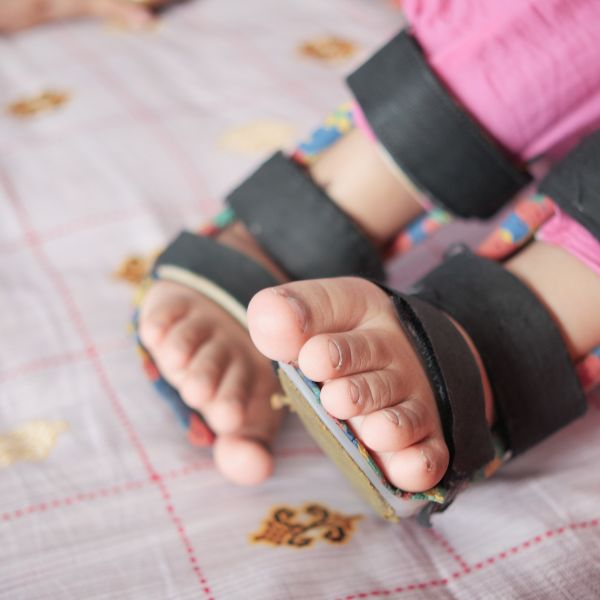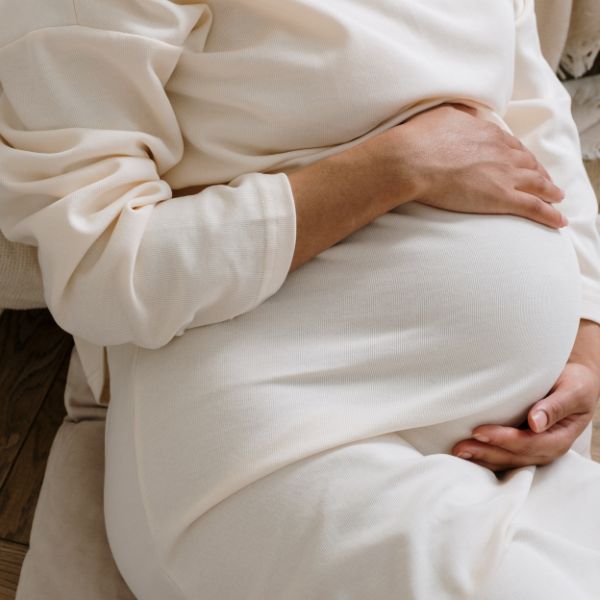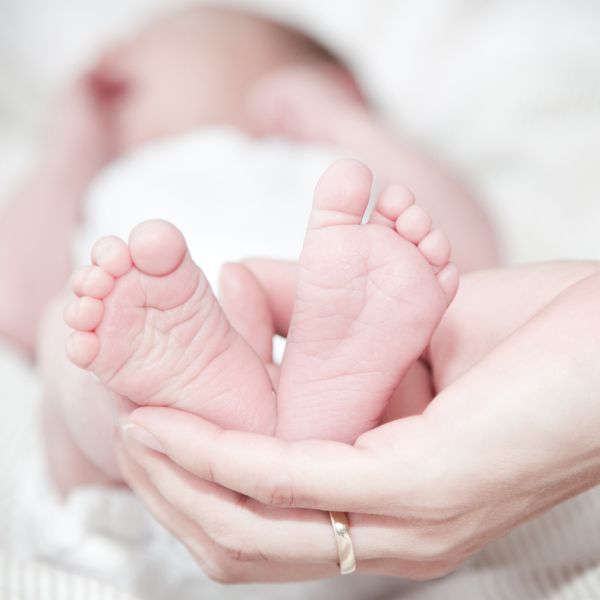International Group B Strep Awareness Month...
Congenital Hip Dysplasia Misdiagnosis & Negligence Claims.
It is estimated that around one in every six babies born will have some element of hip dysplasia, and around two to three in every 1,000 babies will require treatment.
Congenital hip dysplasia is a condition which is routinely screened for in all newborn babies, and early detection and treatment is essential in preventing further complications down the line.
If your baby’s hip dysplasia was not detected early enough due to negligent care from the doctors or midwives responsible for their care, resulting in pain or mobility problems, you may be entitled to make a claim for compensation.
Here at Lanyon Bowdler, our specialist clinical negligence solicitors understand the difficulties faced by families when congenital hip dysplasia is undetected, misdiagnosed, or untreated, and we can provide you with advice and support by helping you to claim compensation for your baby’s injuries.
What is Congenital Hip Dysplasia?
Congenital hip dysplasia (CDH) is a condition in which the ball and socket hip joint has not formed properly, resulting in the hip joint being loose or dislocated fully or partially. When it is diagnosed early, usually within the first six months of the baby’s life, it is a fairly simple procedure to realign the hip joint, and the majority of children will not experience any further problems. However, failure to diagnose the condition early enough could mean that correctional surgery is necessary, and if left untreated, CDH can lead to further complications later in life.
Our Congenital Hip Dysplasia Negligence Expertise
Our team of expert solicitors is incredibly skilled and experienced, and can help you obtain the compensation you deserve for your Congenital Hip Dysplasia Negligence Claim.
Here at Lanyon Bowdler, we understand that no amount of money can make up for what you and your family have been through. However, we will always strive to ensure that you receive the maximum possible compensation award for your child’s hip dysplasia. Compensation can help you to pay for the treatment and equipment that your child requires, as well as any support and assistance that they may need in the future. Additionally, a claim against the hospital will most likely ensure that measures are put into place to prevent the same thing from happening to another family in the future.
Not only will we provide you with the legal expertise you require throughout the case, we are also able to offer additional support to you and your child as you navigate your journey and learn to adapt to life with health complications. Our holistic approach to clinical negligence compensation claims has seen us become one of the leading law firms in the West Midlands, North Wales, and the Marches, with high level accreditations from The Legal 500 and Chambers UK. Not only this, but we have a fearsome national reputation and have represented hundreds of families in the Donna Ockenden Review and those affected by the Shrewsbury and Telford NHS Trust (“SaTH) maternity scandal.
We understand that pursuing a legal case like this may put a financial strain on a family, which is why we are able to offer our services on a no win no fee basis. If you’d like to find out more about how to claim, why to claim, or anything else at all, please get in touch.
Your Congenital Hip Dysplasia questions answered
The exact cause of congenital hip dysplasia is generally unknown. However, there are a number of factors that may contribute to the likelihood of a baby being born with the condition, including:
- A baby born in breech position
- Not enough room in the womb, which can put pressure on the baby’s hip
- Family history of hip dysplasia or other hip problems
- Low levels of amniotic fluid during birth
- First born children, in particular girls, are also thought to be at greater risk
All babies should be routinely screened for hip dysplasia shortly after birth, especially if any of the above risk factors apply. If your baby was not screened adequately and it has resulted in complications such as arthritis, you could be entitled to claim clinical negligence compensation for them. Speak to our experienced and friendly solicitors today who will be happy to offer advice and answer any questions you may have.
When a baby is born, it is the responsibility of the doctor or midwife in charge of their care to perform several examinations to check for hip dysplasia. This will usually involve manipulating the baby’s legs to assess how they feel and move. If the doctor suspects the baby has hip dysplasia, they will then be referred for an ultrasound to confirm the diagnosis, which usually happens when the baby is around four to six weeks old.
If the hip dysplasia was not recognised at birth, the child may begin to exhibit the following symptoms and behaviours as they grow and develop:
- Unable to sit up unaided
- Dragging one leg behind them when crawling
- Learning to walk late
- Walking with a limp
- Appearing very unstable when walking
- Difficulty ascending and descending stairs
- One leg longer than the other
- Asymmetrical thigh creases
- Restricted movement in one or both hips
- An abnormal manner of walking
Hip dysplasia can affect one or both hips, but most often it is the left hip which is affected. It may be noticeable during nappy changes as you may find you’re unable to move one leg out as far as the other, or there may be restrictions in both legs. If you notice any of the above signs in your baby it is important to seek medical advice as soon as possible for the best chance at recovery.
The doctors and midwives looking after newborn babies have a duty of care to carry out a number of assessments within the first few days of the baby’s life, one of which is to check for congenital hip dysplasia. Early diagnosis of the condition is essential in ensuring the best possible prognosis for the child by providing effective treatment before the condition worsens.
Failure to diagnose hip dysplasia can lead to a delay in treatment, and can lead to a number of potential complications for your child as they grow and develop, including:
- Problems with mobility and agility
- Chronic long-term pain
- Osteoarthritis affecting the hip and back
- Bone-related problems later in life
A late diagnosis may also mean that the damage to the hip joint is irreparable, and surgery may be necessary in order to relieve the symptoms, which could have been avoided if the condition was picked up during the newborn checks. Some people with undiagnosed hip dysplasia may also require ongoing physiotherapy and the use of walking aids such as a wheelchair or a walking stick for the rest of their lives.
If your child’s hip dysplasia was undiagnosed or misdiagnosed during their newborn checks, and they have gone on to suffer with complications, you may be able to make a claim for medical negligence compensation. Speak to our friendly and knowledgeable team of clinical negligence solicitors today, who will be happy to discuss your case and answer any questions you may have.
There are several different ways in which hip dysplasia can be treated, and the course of treatment is usually determined by the severity of the condition and how early it was diagnosed. If the condition is identified early, a Pavlik harness is usually an effective and relatively simple treatment option. It involves the use of a fabric splint which keeps the baby’s hips in a stable position and is usually worn for several weeks in order to allow the hips time to develop normally.
If the hip dysplasia is diagnosed after six months, or if the Pavlik harness has been ineffective, it may be necessary to carry out reductive surgery. This consists of putting the femoral head back into the hip socket and can be done via either closed reduction or open reduction surgery. During open reduction surgery, the surgeon makes a large surgical incision in order to realign the femoral head, whereas in a closed reduction the surgeon performs the procedure without making a large incision. Recovery time is usually up to 12 weeks, during which time a cast may need to be worn to ensure the hip heals correctly.
If your baby’s hip dysplasia was missed, or their corrective surgery did not go to plan due to medical negligence, please get in touch to find out how we can help you to claim the compensation you and your child deserve.
Am I Eligible to Claim Congenital Hip Dysplasia Compensation?
During the early days of your baby’s life, they will come into contact with a variety of doctors, midwives, and health visitors, all of whom will be trained and experienced in spotting the early signs of congenital hip dysplasia. These medical professionals have a duty of care to assess your baby for a number of things such as hearing problems, jaundice, and hip dysplasia. If the necessary checks are not carried out for your baby, or if the condition is missed or misdiagnosed, it can lead to complications for your child further down the line.
If you feel that the medical professionals caring for your baby were negligent in the care that they provided, which has led to your baby’s condition worsening, you may be entitled to bring a claim for clinical negligence compensation on their behalf. We will need to be able to show evidence to prove negligence with things such as medical reports and postnatal notes, so it’s vital that you keep hold of any paperwork you are given.
If you are unsure about your eligibility to claim, please get in touch and our team of understanding and empathetic medical negligence lawyers will be happy to discuss your situation and offer advice. In medical negligence claims, there are very strict time limits within which a person can bring a claim so we would strongly recommend that you get in touch with us as soon as possible to avoid any complications and risk time running out.
What our clients say.
Contact Lanyon Bowdler’s Medical Negligence Lawyers Today
By choosing Lanyon Bowdler for a Medical Negligence Compensation Claim, you can rest assured that you have the best legal expertise on your team.
Lanyon Bowdler’s medical negligence team is widely acclaimed and recognised as one of the best clinical negligence departments in the country.
If your baby’s hip dysplasia was not diagnosed or treated early enough due to medical negligence you may be entitled to make a claim for compensation.
Give us a call or complete our online enquiry form, to see how our team can help you get the justice and compensation you deserve.
There is no obligation or any charges for our initial assessment.
We have offices in Shrewsbury, Bromyard, Conwy, Hereford, Ludlow, Oswestry, and Telford, so are able to act for clients all over Shropshire, Herefordshire, Mid and North Wales and across the Midlands (including Wolverhampton & Birmingham). As a leading full-service law firm, we can represent you wherever you live in England and Wales.
We are committed to providing exceptional levels of client care and will work closely and considerately with you to help find the best outcomes and help to get your life back on track.
If you wish to complain or seek compensation for any type of birth injury, our team of medical negligence specialists will be able to deal with it in a sensitive and approachable way.
Meet the team.
Case studies.
Latest knowledge.
Our awards and accolades.
Get in touch.
"*" indicates required fields

 Back
Back






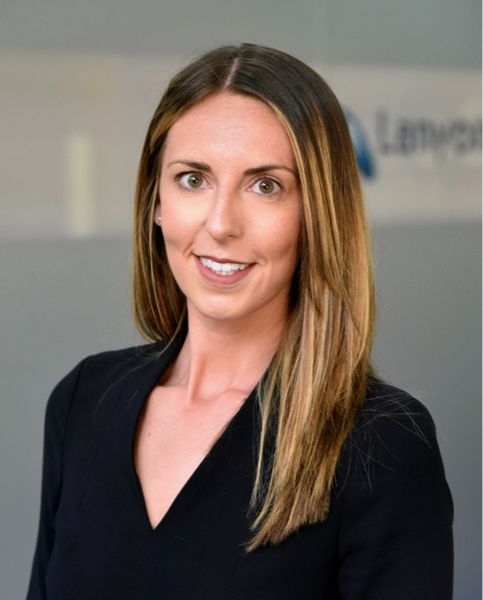
















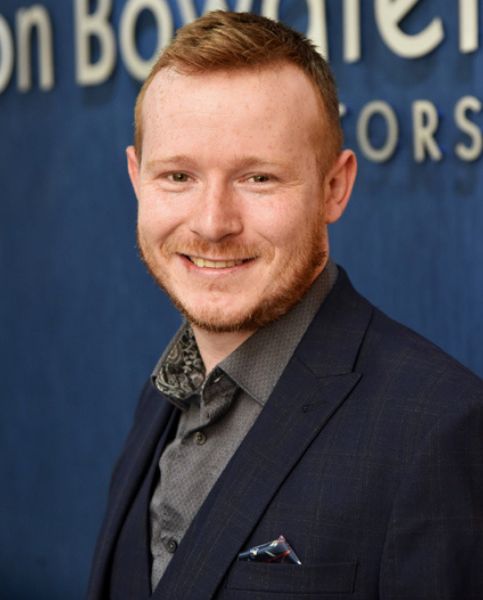





 Blog
Blog

